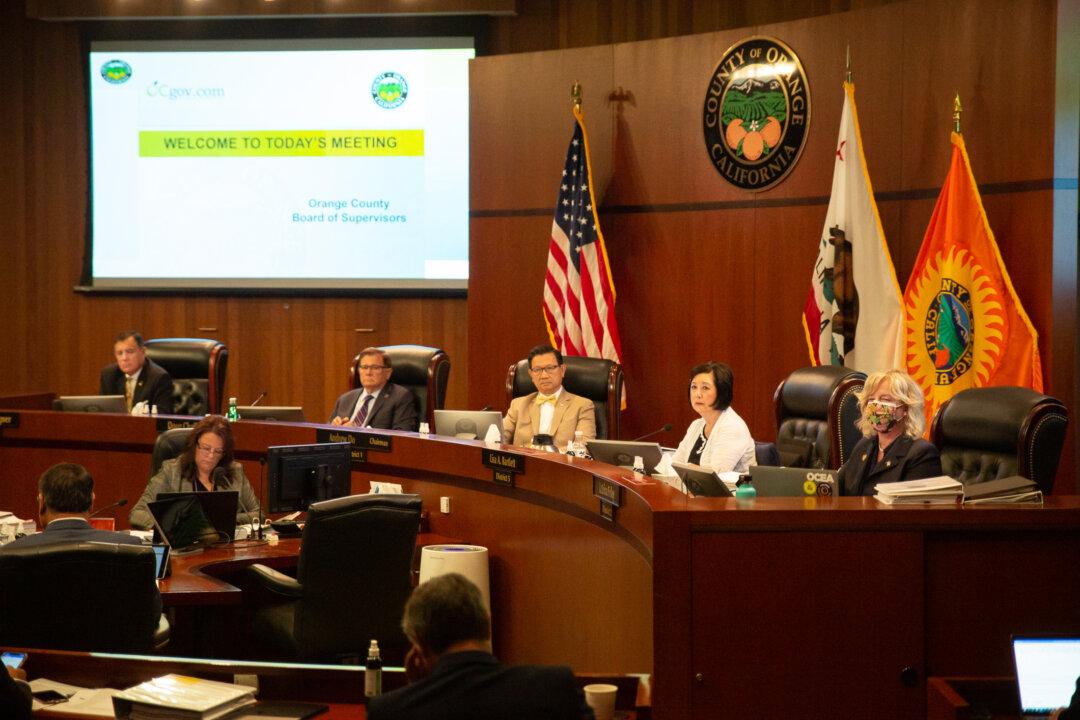SANTA ANA, Calif.—Orange County supervisors voted July 26 to allow supervisors to continue representing their original districts, as well as new districts assigned during a redistricting process last year.
Supervisor Katrina Foley presented the idea to the county’s Board of Supervisors after receiving an opinion the week before from California Attorney General Rob Bonta mirroring her proposal.





